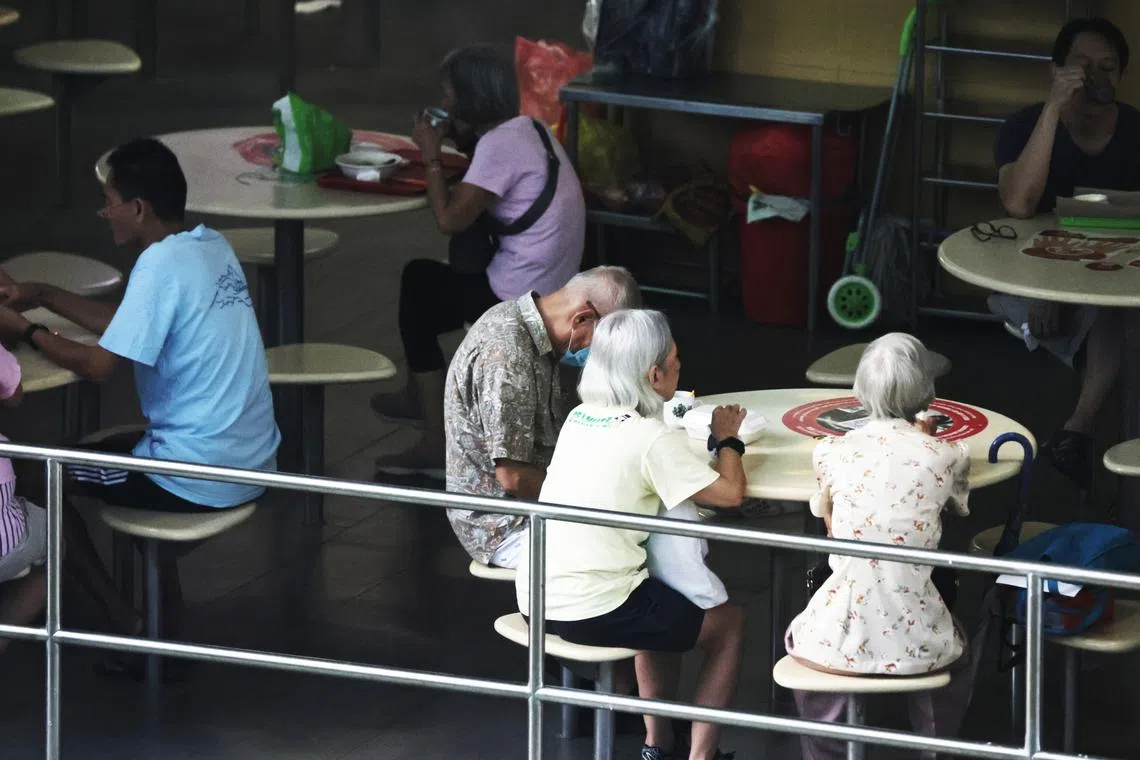Commentary
NDR 2025: The case for growing old at home in super-ageing Singapore
Sign up now: Get ST's newsletters delivered to your inbox

Since senior care infrastructure is already available in many places, the key is to make sure all Singaporeans can access this care.
ST PHOTO: KELVIN CHNG
SINGAPORE – At assisted living flats for seniors in Bukit Batok, there is round-the-clock emergency help, basic health checks, social activities and access to gathering spaces.
It’s a new housing concept for fast-ageing Singapore, with the first keys given out 10 months ago.
Such homes, known as Community Care Apartments (CCAs), will also feature in Queenstown, Bedok and Geylang. And there will be more to cater to seniors who want to live independently, but with some help.
No matter how quickly these flats are built, though, it’s unlikely to adequately meet the needs of our super-ageing nation
By 2026, it is likely that at least 21 per cent of the population will fall into this category, making us officially super-aged by international standards.
In fact, there are already super-aged towns in Singapore, like Toa Payoh, where nearly one in four people is 65 and above.
That more options are needed to supplement the CCA scheme, launched in 2021, was clearly articulated by Prime Minister Lawrence Wong in his National Day Rally speech on Aug 17.
“There is a limit to how many new CCAs we can build,” he said. “Furthermore, many seniors don’t want to move out... They prefer to age where they are, and we will need to provide for them as they get older.”
His government’s solution: Age Well Neighbourhoods
This new scheme will distil the key elements of assisted living flats, such as senior-friendly activity spaces and healthcare services, and bring them closer to homes.
Neighbourhoods with more seniors, such as Toa Payoh, will be the first to get this treatment.
It’s a sensible approach, and not just because there is a limit to how many CCAs we can build.
This way, there is also better use of scarce resources and, in particular, land.
More CCAs means less space available on a plot for other types of public housing.
This trade-off must be taken seriously, especially in the light of a supply crunch, among other factors, that has driven up public housing prices in recent years.
The Government has also signalled that it is reviewing the income ceiling
If either is eased, demand will go up. How to manage the growing housing needs of different demographics will become a bigger challenge for policymakers.
This is why Age Well Neighbourhoods make sense, since senior care infrastructure is already available in many places.
The key is to make sure all Singaporeans can access this care.
At Age Well Neighbourhoods, the plan is to make “physical touchpoints”, such as active ageing centres, more accessible to seniors. In Toa Payoh, for example, some seniors have to walk more than 1km to the nearest centre.
“We will identify new sites, to make it more convenient for seniors,” PM Wong said.
Healthcare services, such as rehabilitation, will be brought closer to home, while home-based services – ranging from simple fixes to housekeeping to laundry – will be expanded.
The idea is to support seniors where they are, instead of uprooting them, in their golden years.
There is, however, one crucial difference between assisted living flats and Age Well Neighbourhoods, and that is the number of people involved in providing care.
In the Bukit Batok CCAs – the only ones to be completed so far – a single operator, Vanguard Healthcare, is responsible for providing basic services.
This is unlikely to be the case in most neighbourhoods.
At present, an active ageing centre may be run by a social service agency, while the nearby community health post is staffed by nurses from the public healthcare sector, and yet another organisation offers personal care services at home.

Many hands make light work, especially when the needs are pressing.
But with so many players involved, it can be difficult for people to navigate the system and get the help they need.
Getting this right has to be a priority for the Age Well Neighbourhoods scheme to work.
Already, many health posts are conveniently located in active ageing centres.
Ideally, these centres will become the go-to spots for everything that seniors need – medical check-ups, yes, but also meaningful friendships.
In its 60 years of independence, Singapore has faced a number of existential challenges.
Being a super-aged society will soon be one of them – and, as before, how the country rises to the challenge will be a test of its grit and ingenuity.
Read more: Key announcements from PM Wong’s first National Day Rally
Watch PM Wong’s National Day Rally speech here:



